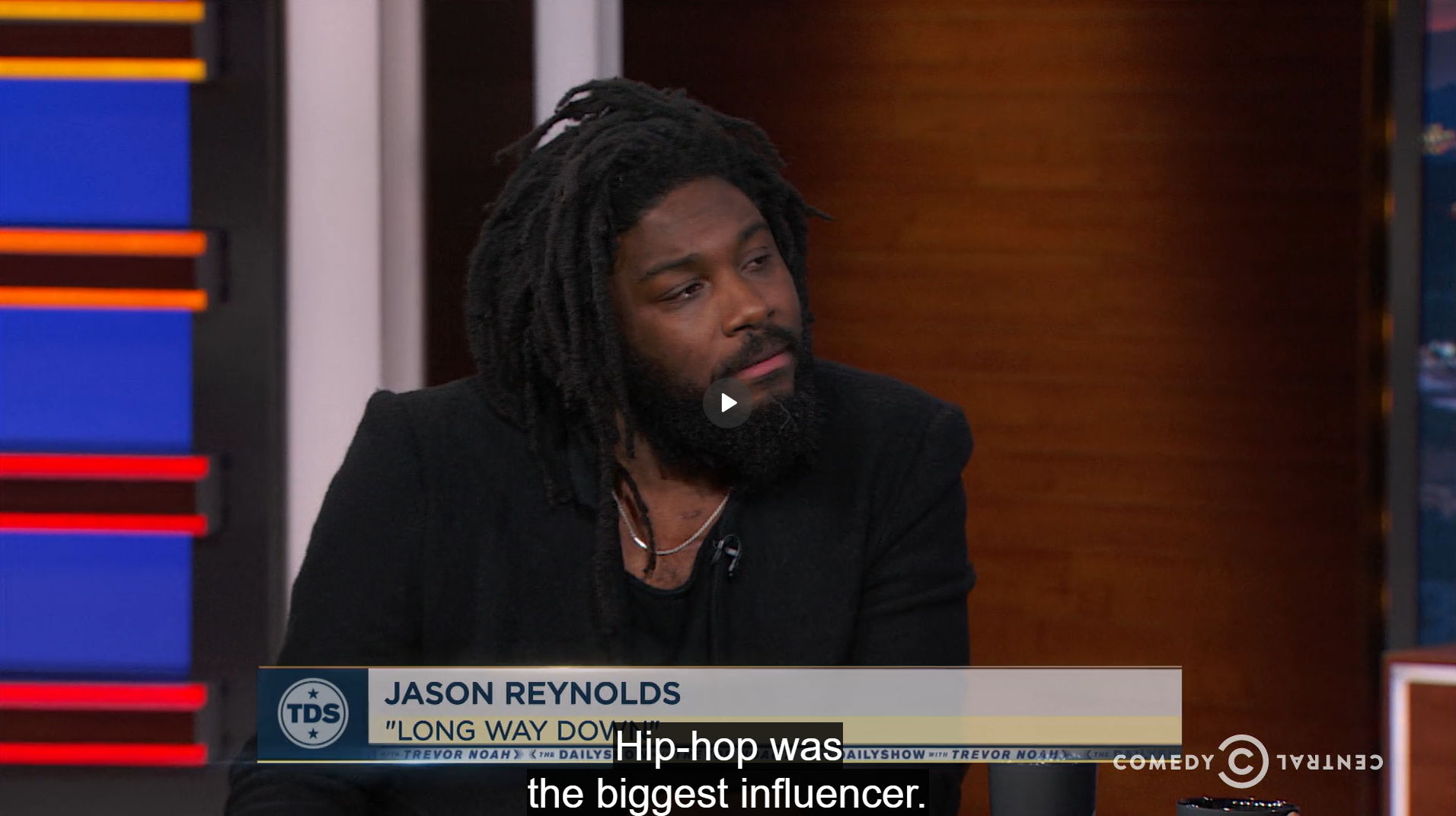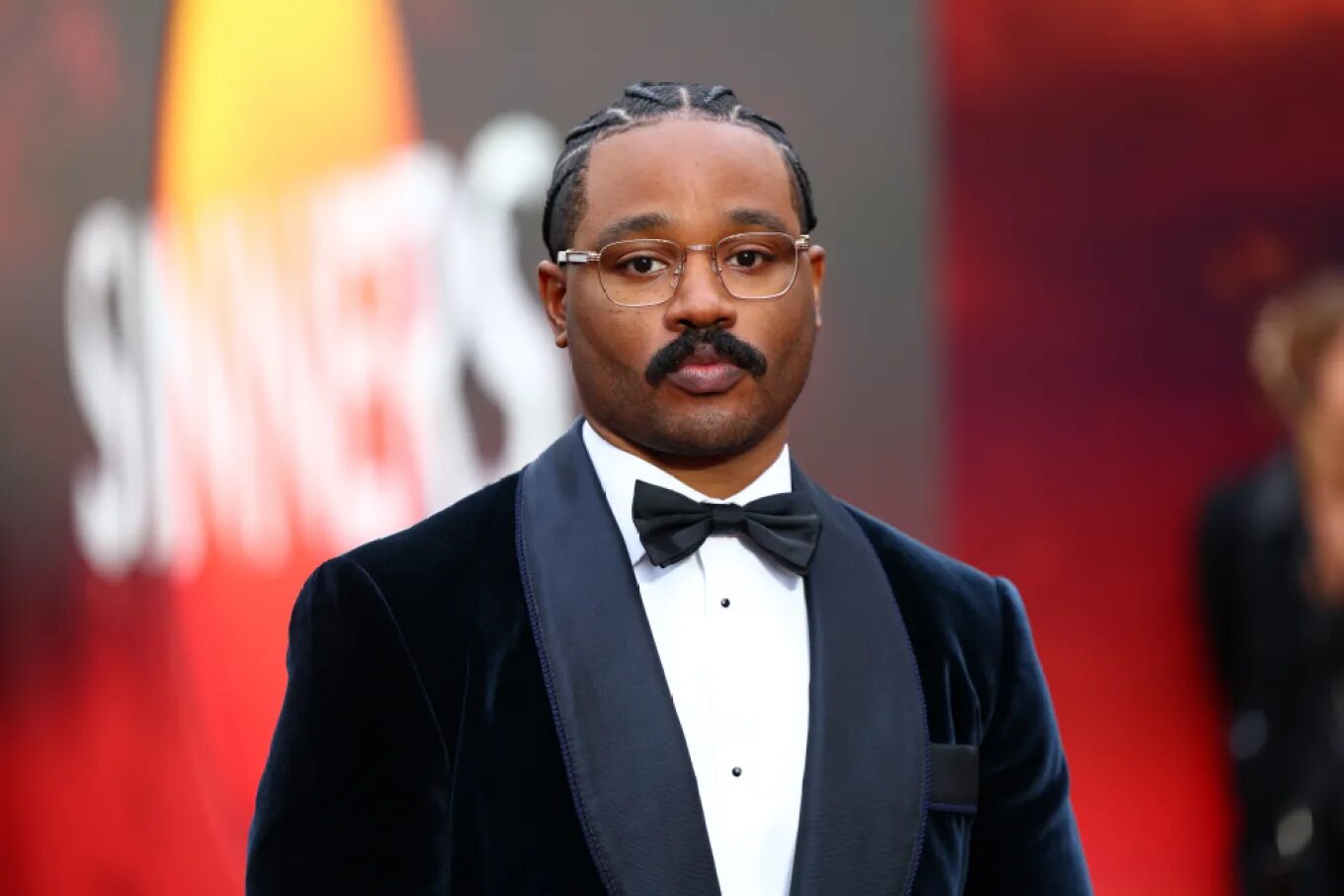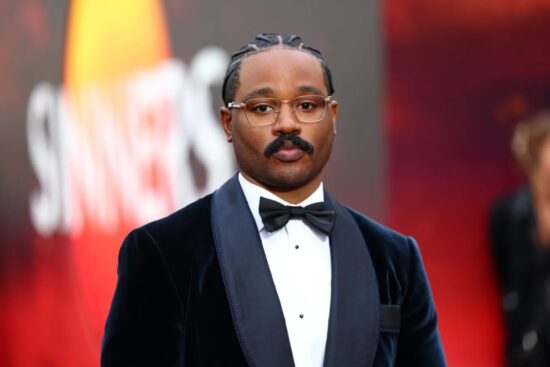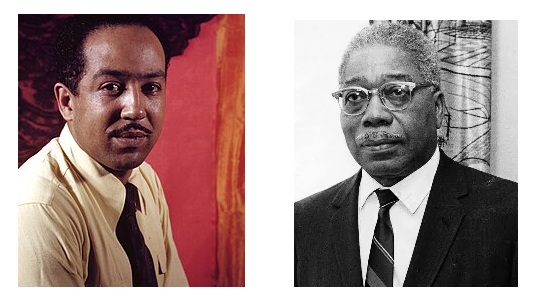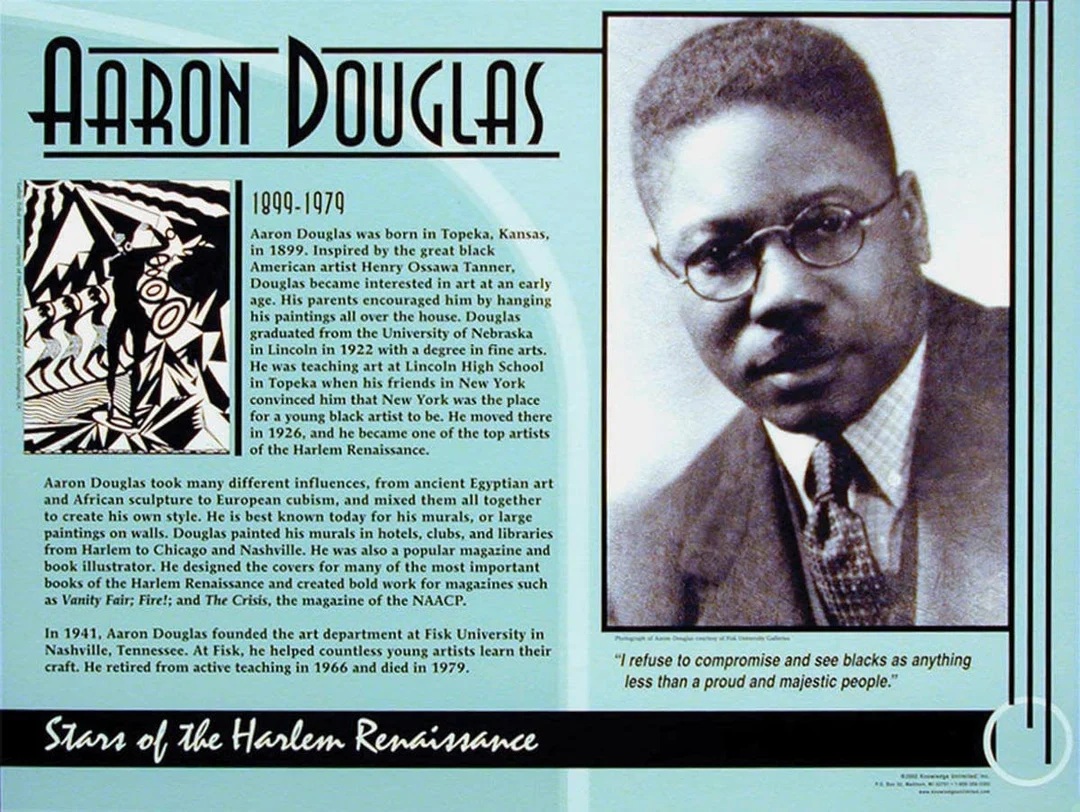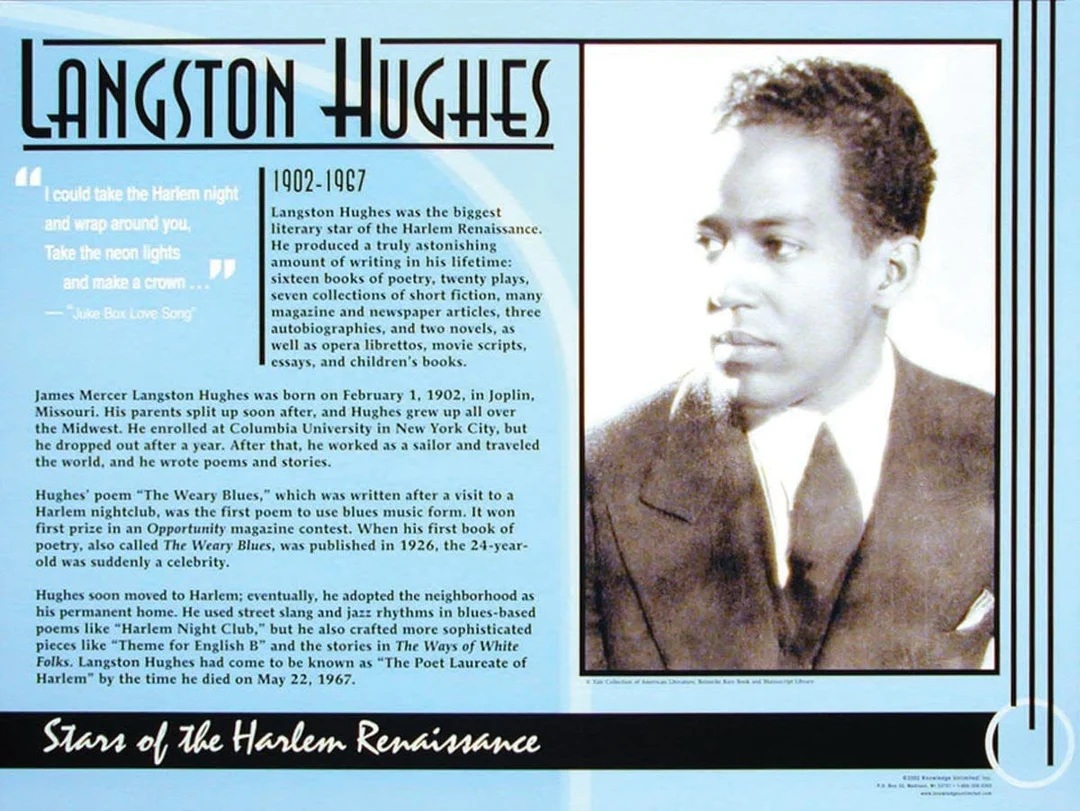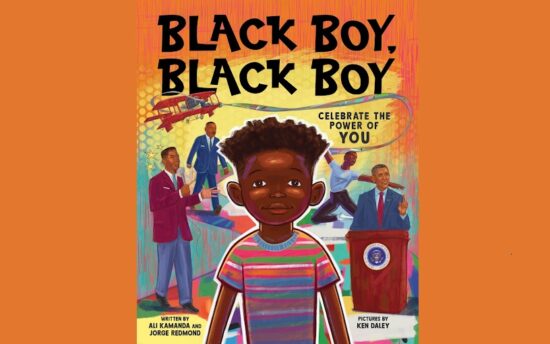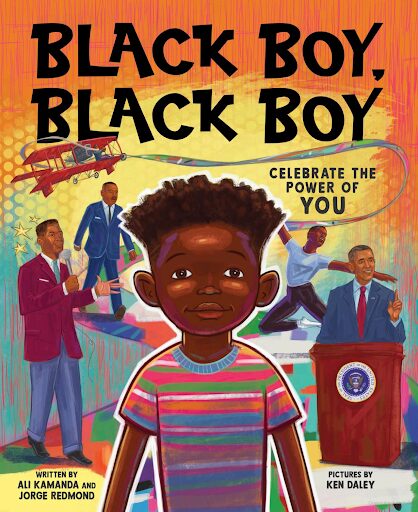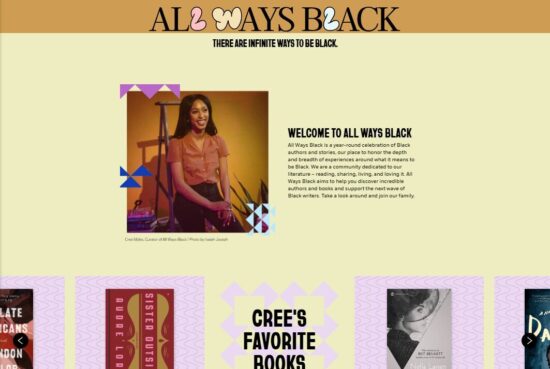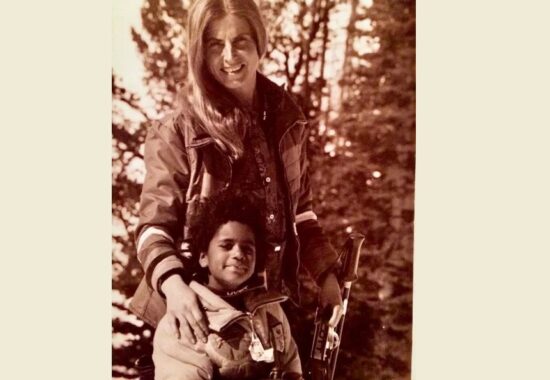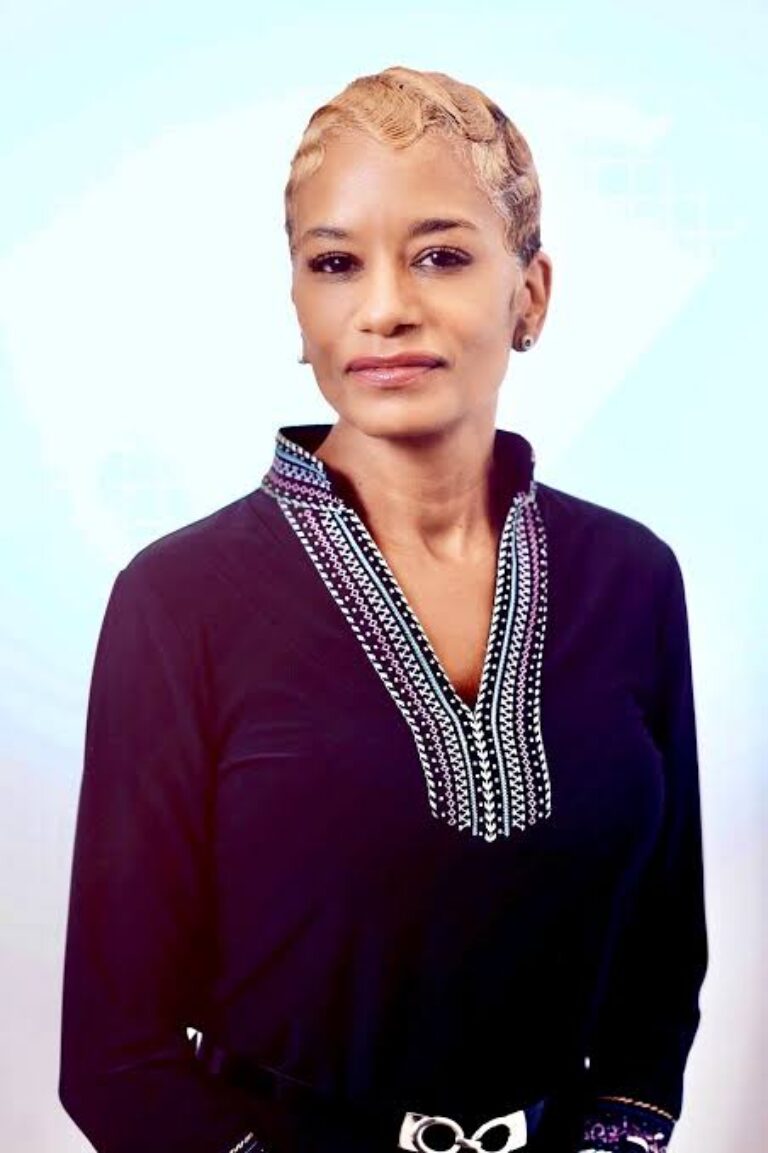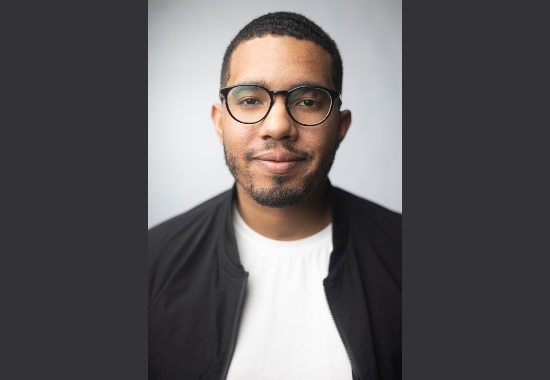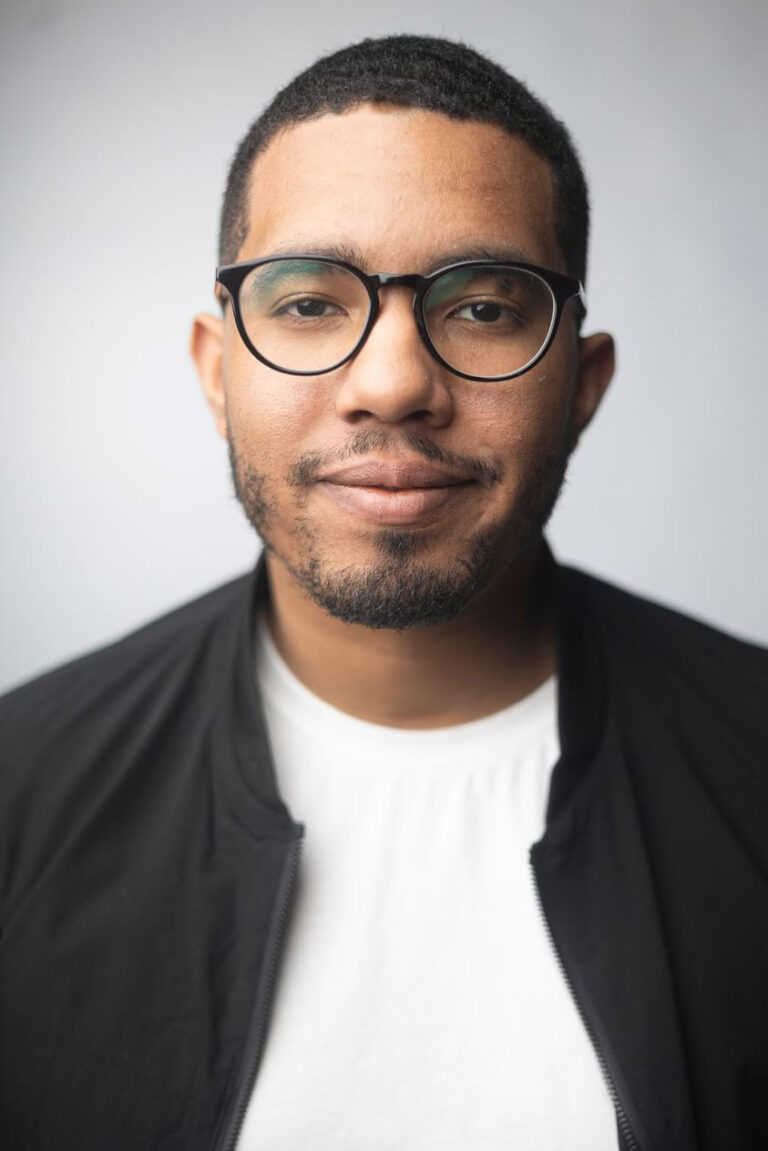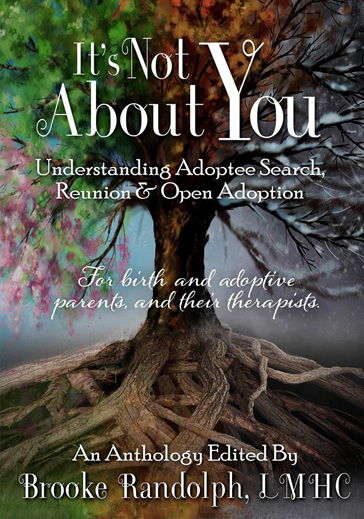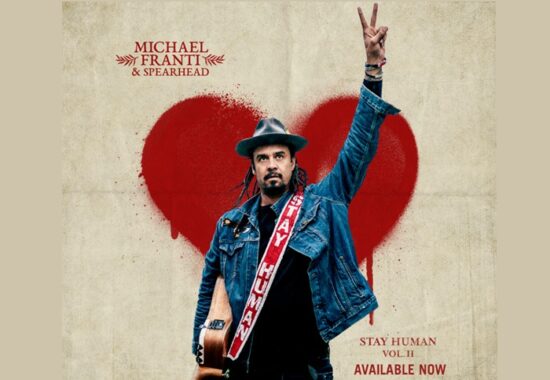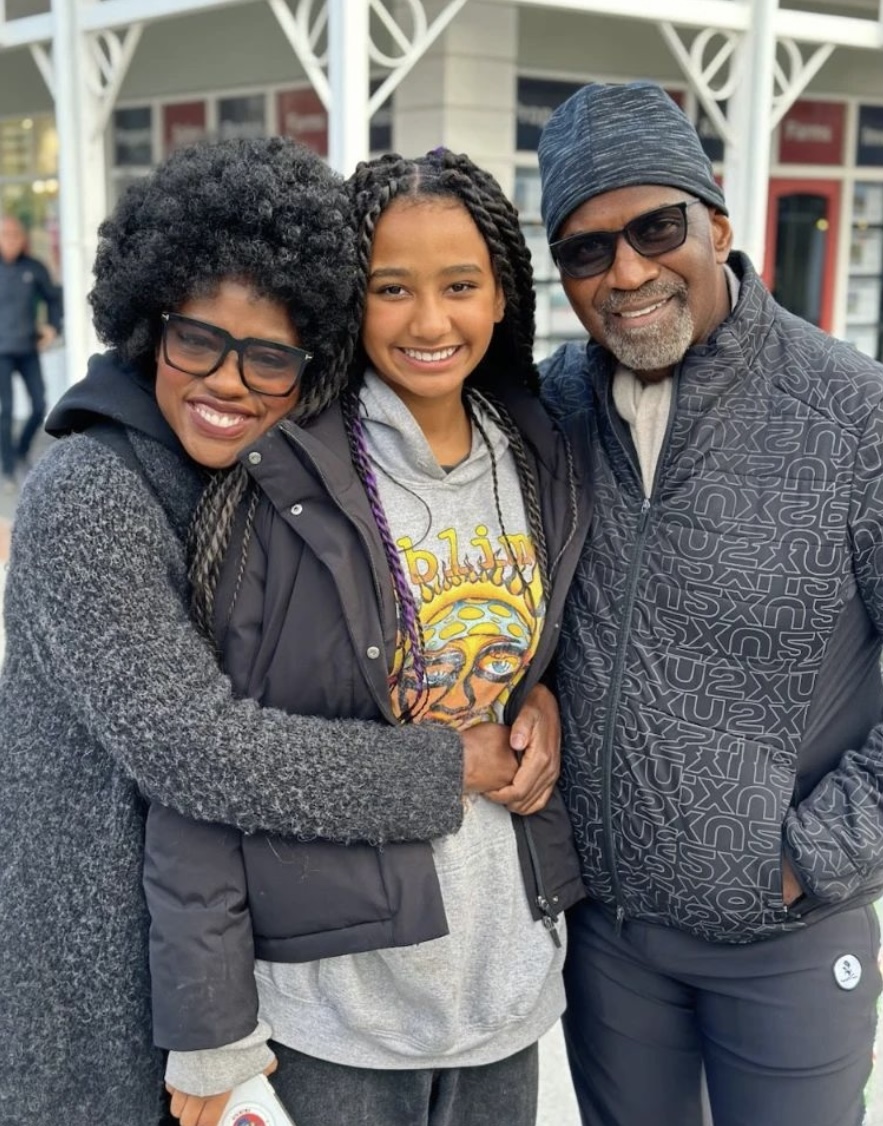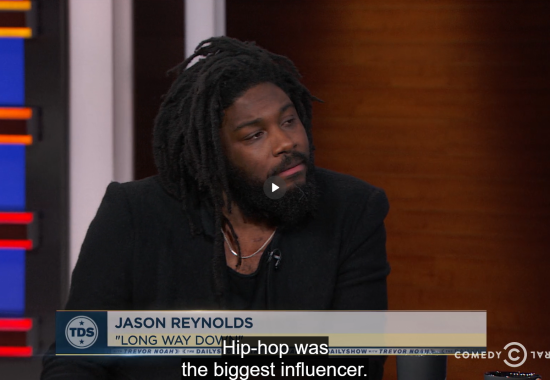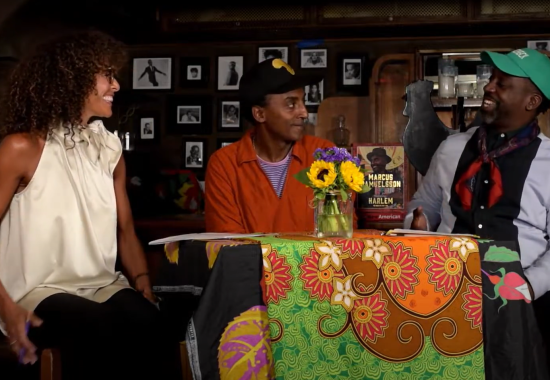Jason Reynolds is a highly acclaimed and influential author known for his impactful contributions to contemporary literature, particularly for youth, as well as his activism and his approachability and service to kids and young adults. Born in 1983 outside Washington, D.C., Reynolds has risen to prominence for his ability to authentically capture the experiences of Black youth in America while dismantling stereotypes and creating empathy and positive self- and societal perceptions of Blackness. His work is not merely storytelling; it is a profound act of bearing witness to the lives, struggles, joys, and complexities of Black youth in America. Through his unflinching yet empathetic lens, Reynolds dismantles stereotypes, fosters understanding, and empowers a generation to see their own stories as valuable and worthy.
Reynolds started writing poetry when he was nine years old, inspired by Queen Latifa’s third album, Black Reign. Rap would continue to be his primary form of literary inspiration, because at the time there weren’t books about contemporary black youth experience, and for Reynolds, Rap gave him a sense of existence: “Rap music . . . let me know that who I already was was good enough.” This foundational connection to rhythm, rhyme, and authentic storytelling permeates his writing, often blurring the lines between poetry and prose. His ability to capture the vernacular, the humor, and the raw emotions of his characters creates an immediate and powerful connection with readers, particularly those who have long felt unseen in mainstream literature.
Reynold’s books, often written in verse, create a sense of connection and empowerment by portraying relatable characters living ordinary lives and facing issues that Black youth often grapple with and don’t often seen portrayed in “classic” literature. This authentic representation is a cornerstone of Black excellence in his work. He crafts characters who are fully realized individuals, navigating everyday life with all its nuances. He doesn't shy away from difficult realities like racism, poverty, and violence, but he also illuminates the resilience, strength, and love within Black communities. His characters are not monolithic; they are diverse in their personalities, interests, and experiences, reflecting the multifaceted nature of Black identity. For instance, in his Track series, each book centers on a different young runner with their own unique challenges and triumphs.
By centering Black youth in his narratives, Reynolds sends a powerful message of validation, fostering empowerment through visibility. He makes it clear that their stories matter, their voices are important, and their existence is significant. As he himself has stated, his books are "love letters to Black kids," acknowledging their presence and bearing witness to their lives. This visibility can be transformative for young readers who may finally see themselves reflected in literature in a meaningful and authentic way. Furthermore, Reynolds actively challenges harmful and limiting stereotypes often associated with Black youth. His characters are not simply defined by their struggles; they are also intelligent, creative, vulnerable, and full of potential. He portrays them as complex human beings with dreams, fears, and aspirations that transcend racial clichés.
Reynolds has actively advocated for increased diversity in literature and has been vocal about the need for more inclusive narratives. He emphasizes the importance of having stories that reflect the richness and diversity of the Black experience and has worked to promote literacy, frequently engaging with young readers through school visits, speaking engagements and initiatives to make literature more accessible. Beyond his writing, Reynolds' approachability and service to kids and young adults is a testament to his commitment to fostering a love of reading and storytelling within Black communities. His tenure as the National Ambassador for Young People's Literature saw him traveling across the country, engaging with young readers, and emphasizing the power of their own stories through his "GRAB THE MIC: Tell Your Story" platform, encouraging students to embrace and share their personal narratives, fostering a sense of ownership and empowerment through language.
While his focus is often on the Black experience, Reynolds' work also possesses a universal quality that resonates with readers of all backgrounds. By grounding his stories in relatable human emotions and experiences – grief, friendship, identity, and resilience – he fosters empathy and understanding across racial lines. His co-authored book All American Boys, which tackles the issue of police brutality from the perspectives of both a Black victim and a white witness, exemplifies this commitment to bridging divides.
Reynolds' exceptional contributions to literature have been widely recognized through numerous prestigious awards and honors, including multiple Coretta Scott King Book Awards, Newbery and Printz Honors, National Book Award Finalist distinctions, the Kirkus Prize, Carnegie Medal, NAACP Image Award, Margaret A. Edwards Award, and a MacArthur Fellowship. These accolades not only celebrate the quality of his writing but also underscore the profound impact his work has on young readers and the literary landscape.
In conclusion, Jason Reynolds is more than just a bestselling author; he is a cultural force. Through his powerful storytelling, his unwavering commitment to authentic representation, his passionate advocacy for young people, and his genuine service to his readers, he embodies Black excellence in its truest form. He has created a body of work that not only resonates deeply with Black youth but also invites all readers to engage with stories that are both deeply personal and universally relevant, fostering empathy, understanding, and a profound appreciation for the richness and complexity of the Black experience. His legacy will undoubtedly continue to inspire and empower generations to come.
For more on this phenomenal game-changer, listen to his interview with Trevor Noah here: https://www.cc.com/video/avk8pe/the-daily-show-with-trevor-noah-jason-reynolds-serving-young-readers-with-long-way-down